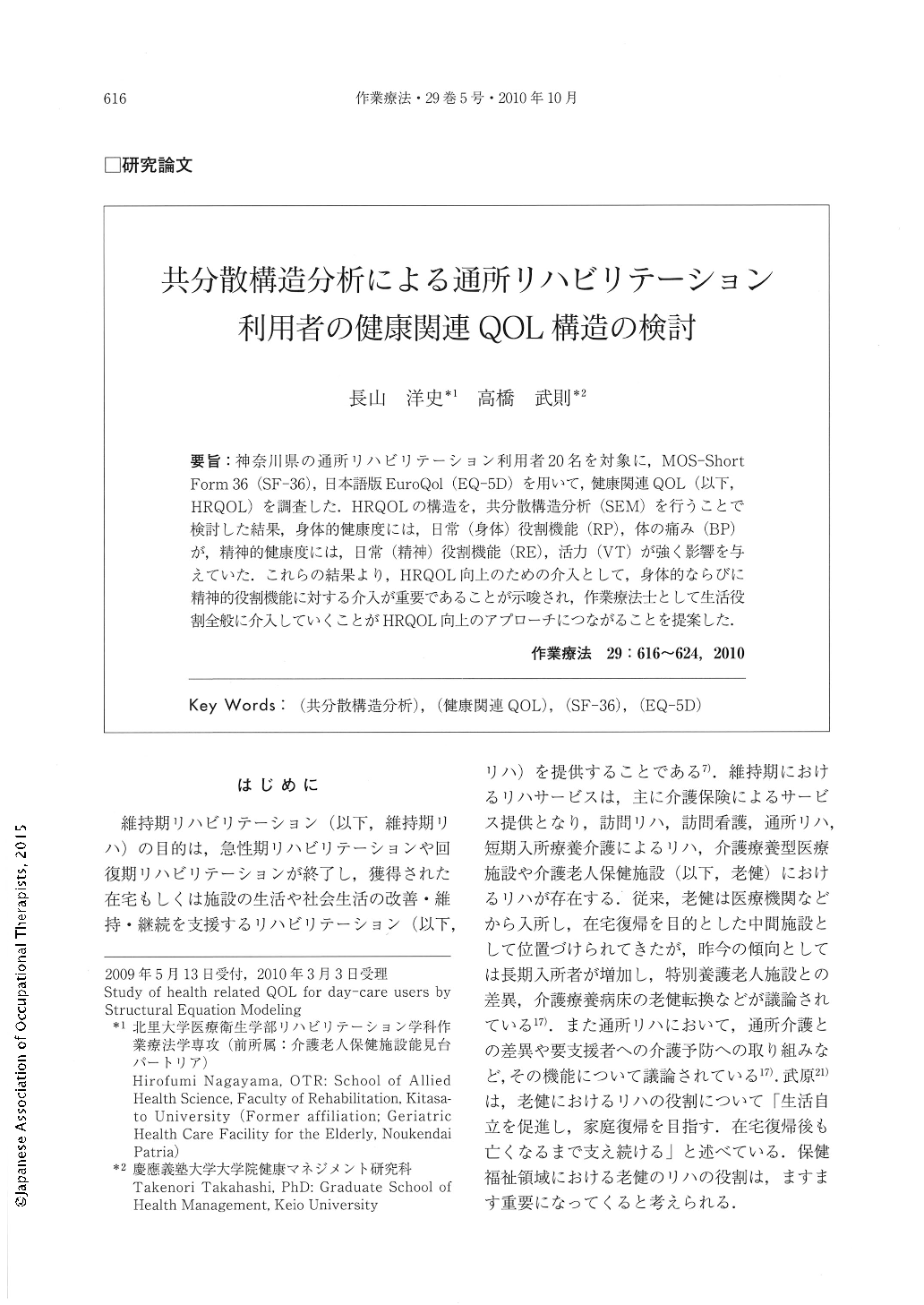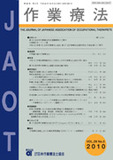Japanese
English
- 販売していません
- Abstract 文献概要
- 1ページ目 Look Inside
- 参考文献 Reference
- サイト内被引用 Cited by
要旨:神奈川県の通所リハビリテーション利用者20名を対象に,MOS-Short Form36(SF-36),日本語版EuroQol(EQ-5D)を用いて,健康関連QOL(以下,HRQOL)を調査した.HRQOLの構造を,共分散構造分析(SEM)を行うことで検討した結果,身体的健康度には,日常(身体)役割機能(RP),体の痛み(BP)が,精神的健康度には,日常(精神)役割機能(RE),活力(VT)が強く影響を与えていた.これらの結果より,HRQOL向上のための介入として,身体的ならびに精神的役割機能に対する介入が重要であることが示唆され,作業療法士として生活役割全般に介入していくことがHRQOL向上のアプローチにつながることを提案した.
Health Related Quality of Life (HRQOL) was evaluated using MOS-Short Form 36 (SF-36) and Euro QOL (EQ-5D) for day-care users in Yokohama. HRQOL was derived by combining Euro EQ-5D, Visual Analog Scale (VAS) and the two summary scores of SF-36: physical-component-summary (PCS) and mental component summary (MCS). A pass diagram was graphicated based on this hypothesis, and Structural Equation Modeling was utilized.
As a result, the causal relationship between summary scores of SF-36 and HRQOL within day-care users became clear by performing Structural Equation Modeling. HRQOL influenced PCS more than MCS. Role-physical (RP) and body-pain (BP) also influenced PCS. Role-emotional (RE) and vitality (VT) influenced MCS. The results indicate that role functioning intervention may be effective in improving HRQOL. Thus, we propose that intervention is efficient for day-care users to achieve high HRQOL.

Copyright © 2010, Japanese Association of Occupational Therapists. All rights reserved.


